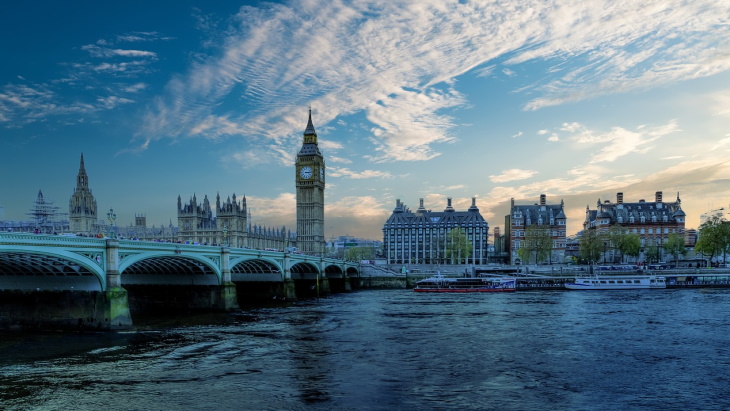The UK government has announced plans to decarbonise the country's power system by 2035, instead of the previous target of 2050. The plan focuses on building a secure, home-grown energy sector - including nuclear energy - that reduces reliance on fossil fuels and exposure to volatile global wholesale energy prices.

Westminster (Image: Pete Linforth, Pixabay)
In December 2020, the UK government published its Energy White Paper, which identified nuclear power as a way to help the country achieve the four-fold increase in clean electricity generation needed to achieve its net-zero target by 2050. The White Paper, Powering our Net Zero Future, developed Prime Minister Boris Johnson's Ten Point Plan for a Green Industrial Revolution by setting out specific steps the government will take over the next decade to cut emissions from industry, transport and buildings by 230 million metric tonnes, while supporting hundreds of thousands of new green jobs.
The government has already committed to removing coal from the electricity mix no later than 2025 and perhaps as early as 2024.
The new plan - confirmed earlier this week by Prime Minister Boris Johnson and Business and Energy Secretary Kwasi Kwarteng - brings forward by 15 years the government's commitment to a fully decarbonised power system, set out in the Energy White Paper, and builds on Johnson's Ten Point Plan.
"While gas generation continues to play a critical role in keeping the UK electricity system secure and stable, the development of clean energy technologies means it will be used less frequently in the future," a statement yesterday from the Department for Business, Energy and Industrial Strategy (BEIS) said. "To ensure a clean electricity system is reliable, wind and solar power will need to be complemented by other clean technologies, such as nuclear and flexible technologies, that can supply electricity or reduce demand when the output from wind and solar generation is low."
BEIS said the government will "double down on efforts to deploy a new generation of home-grown technologies - from offshore wind, hydrogen and solar, to nuclear, onshore wind and carbon capture and storage."
"Our plan to move to clean energy and a carbon-neutral economy means new kinds of jobs in new kinds of industries," Kwarteng said. "The world needs the innovation and entrepreneurial genius of British companies for this transition to succeed.
"Recent volatile gas prices have also demonstrated how the way to strengthen Britain's energy security, ensure greater energy independence and protect household energy budgets in the long-term is through clean power that is generated in this country for the people of this country."
The government said it will set out further details on its wider plans to achieve net-zero emissions by 2050, through its net zero strategy, which will be published ahead of the UK playing host to the UN COP26 climate summit, to be held from 31 October to 12 November in Glasgow.
Nuclear power supplies about 16% of the UK's electricity, but its existing fleet of reactors are approaching the end of their operating lives. In 2016, the government agreed contracts for the first new nuclear power plant in a generation - Hinkley Point C - which will provide 7% of the country's current electricity needs.
"The PM's target requires urgent investment in a new generation of nuclear stations for clean and reliable power," Tom Greatrex, Chief Executive of the Nuclear Industry Association said. "We know that nuclear and renewables work well together to cut emissions, and we'll need a strong low-carbon energy mix to fully decarbonise the grid and protect our energy security. The government needs to legislate for a new financing model and give its clear backing to large and small nuclear projects."
Researched and written by World Nuclear News